[Newsbits] 24-30.01.2024: INSAT-3DS, European Ports Alliance & more
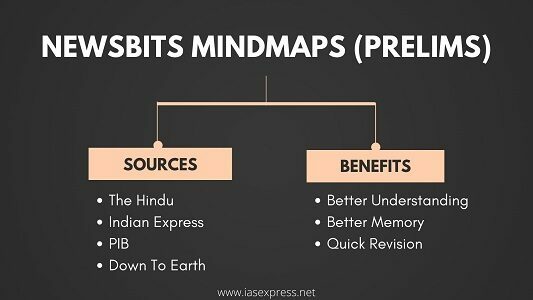
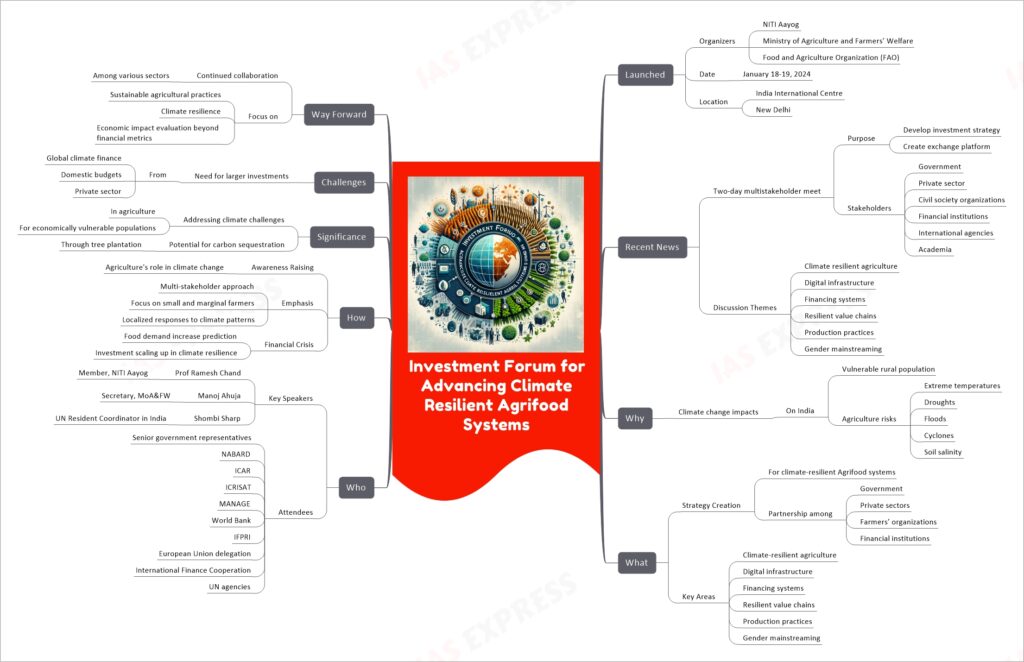
The Investment Forum for Advancing Climate Resilient Agrifood Systems in India, launched by NITI Aayog, the Ministry of Agriculture and Farmers’ Welfare, and the Food and Agriculture Organization (FAO), aims to develop strategies for enhancing climate-resilient agrifood systems in India. This initiative, inaugurated in January 2024, focuses on creating an investment and partnership strategy by involving various stakeholders from the government, private sectors, farmers’ organizations, and financial institutions. Discussions at the forum centered around climate-resilient agriculture, digital infrastructure, financing systems, value chains, production practices, and gender mainstreaming in the context of climate resilience. The forum highlighted the significant impact of climate change on India, especially on its rural population dependent on climate-sensitive agriculture, emphasizing the need for larger investments from various sources to address these challenges. Key speakers at the event stressed the importance of a multi-stakeholder approach, focusing on small and marginal farmers, and the need for local solutions to climate patterns, as well as raising awareness about agriculture’s role in climate change and the potential for carbon sequestration through tree plantation on farmland. The forum sets a direction for future collaboration among different sectors, focusing on sustainable agricultural practices, climate resilience, and evaluating the economic impact of agricultural activities beyond financial metrics.
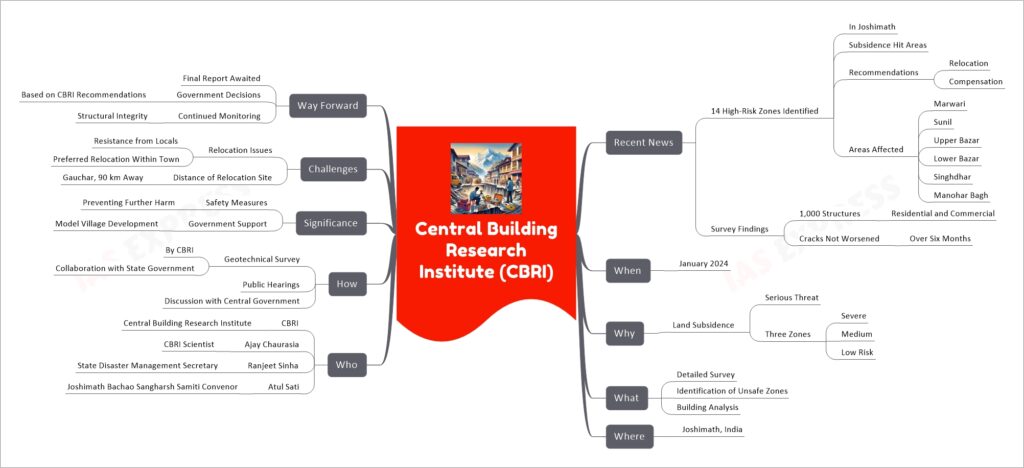
The Central Building Research Institute (CBRI), in January 2024, identified 14 high-risk zones in Joshimath, India, due to severe land subsidence. This situation has rendered approximately 1,000 residential and commercial structures unsafe. CBRI’s detailed survey revealed three risk zones (severe, medium, and low) and advised the relocation or compensation of affected residents. The regions most impacted include Marwari, Sunil, Upper Bazar, Lower Bazar, Singhdhar, and Manohar Bagh. Despite this recommendation, there is resistance from locals who prefer relocation within the town itself, as opposed to distant areas like Gauchar, which is 90 km away. The government, along with CBRI, is working to find a feasible solution, considering the safety and socio-economic aspects of the affected population.
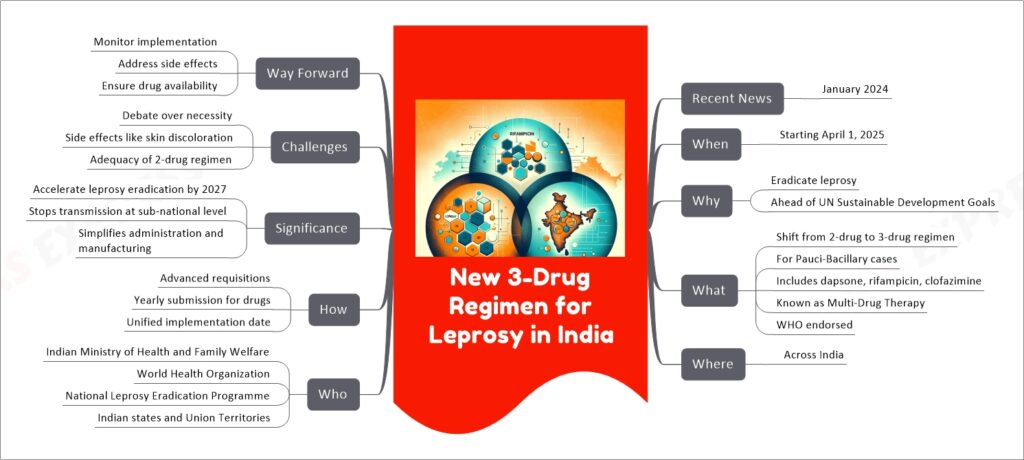
In January 2024, the Indian Ministry of Health and Family Welfare announced the approval of a new 3-drug regimen for the treatment of Pauci-Bacillary (PB) leprosy, set to start on April 1, 2025. This initiative replaces the existing 2-drug regimen and includes dapsone, rifampicin, and clofazimine. Endorsed by the World Health Organization (WHO), it is part of India’s commitment to eradicate leprosy by 2027, aligning with the United Nations’ Sustainable Development Goals. While this transition is expected to accelerate the eradication of leprosy and simplify treatment processes, there are concerns about its necessity and potential side effects, such as skin discoloration.
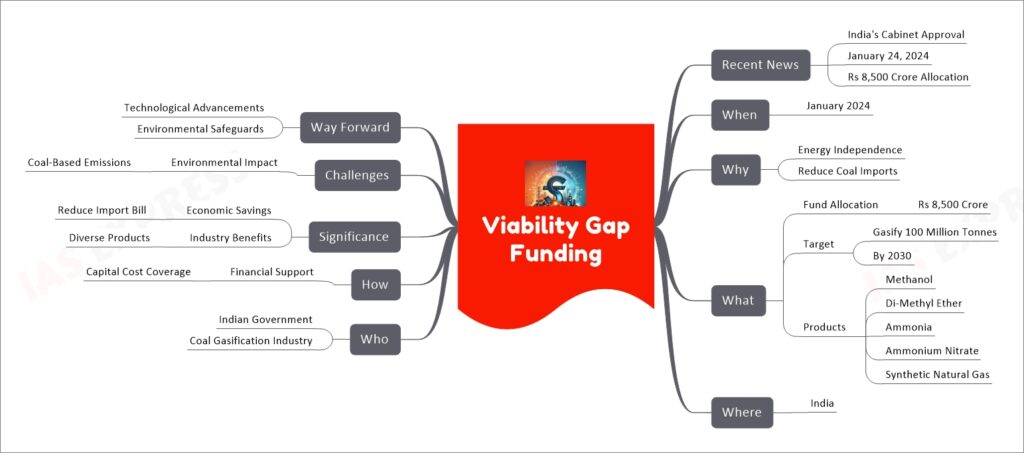
The Indian government recently approved Viability Gap Funding (VGF) of Rs 8,500 crore for coal gasification, aiming to gasify 100 million tonnes of coal by 2030. This strategic move, announced on January 24, 2024, is part of India’s effort to achieve energy independence and reduce its coal import bill. The funding will support the production of various products, such as methanol, Di-Methyl Ether, ammonia, and Synthetic Natural Gas, benefiting multiple industries. While offering economic benefits, the initiative also faces environmental challenges due to coal-based emissions.
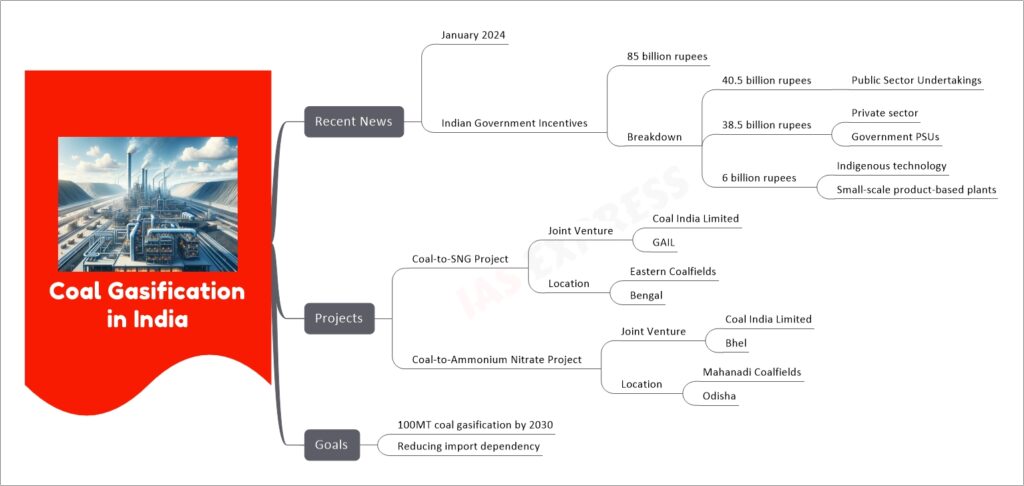
In January 2024, the Indian government announced significant financial incentives totaling 85 billion rupees to support coal gasification projects. This initiative includes two major projects: a coal-to-SNG project in Bengal, and a coal-to-ammonium nitrate project in Odisha, both involving partnerships with major corporations like GAIL and Bhel. The goal is to achieve 100MT of coal gasification by 2030, aiming to reduce India’s dependency on imports.

The 2024 Padma Awards are a prestigious set of Indian civilian honors awarded annually in three categories: Padma Vibhushan, Padma Bhushan, and Padma Shri. These awards recognize achievements in various fields such as art, social work, public affairs, science, trade, and more. This year, 132 awards were announced, including notable awardees across diverse fields and regions, both from India and internationally. The awards are a significant acknowledgment of contributions to society and national development.
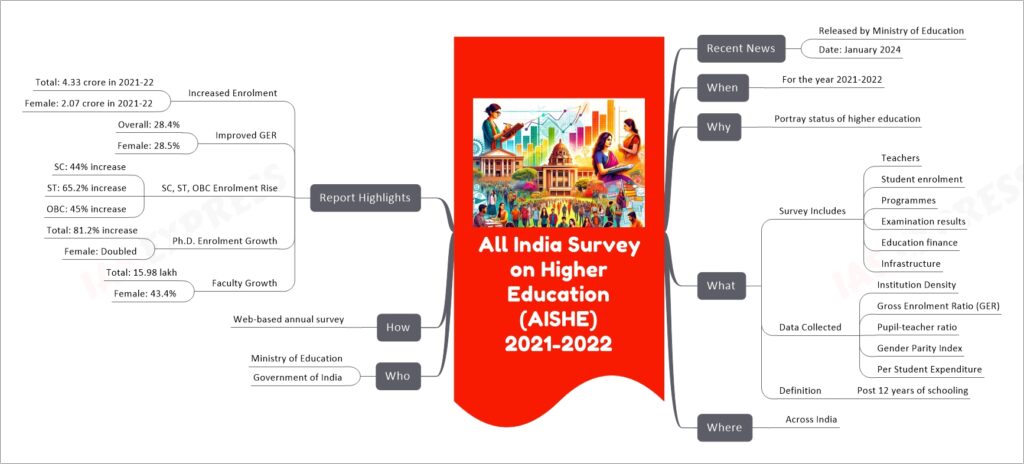
The AISHE 2021-2022 report, released by India’s Ministry of Education, provides a detailed analysis of the higher education sector in the country. It covers data on student enrolment, faculty, academic programs, and educational infrastructure. Key highlights include an increase in overall student enrolment to 4.33 crore, with significant growth in the enrolment of female, SC, ST, and OBC students. The report also notes an improvement in the Gross Enrolment Ratio and an increase in female faculty members in higher education institutions.
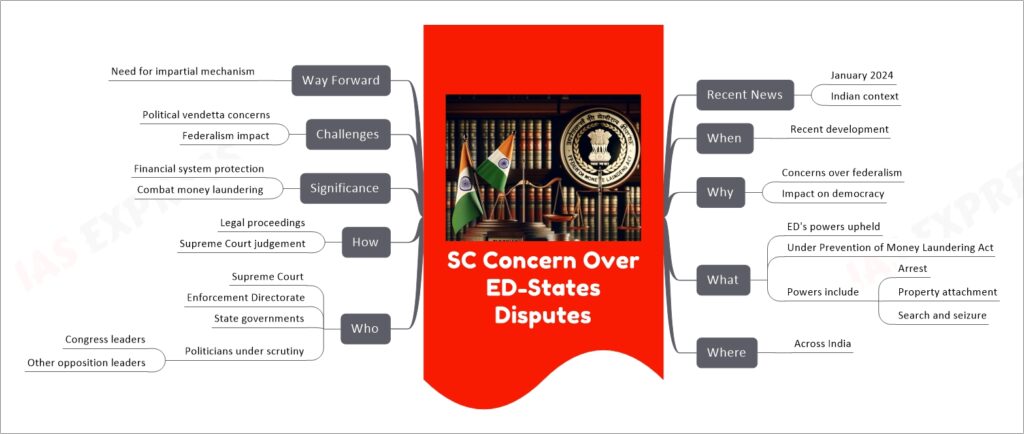
The Supreme Court of India recently raised concerns about the escalating disputes between the Enforcement Directorate (ED) and various state governments. These disputes stem from the ED’s enhanced powers under the Prevention of Money Laundering Act, including arrest, property attachment, and search and seizure, which have been upheld by the Supreme Court. This situation poses significant implications for federalism and democracy in India, particularly with accusations of these powers being used for political vendetta. The resolution of these disputes is critical for maintaining a balance between combating financial crimes and protecting democratic values and federal structures.
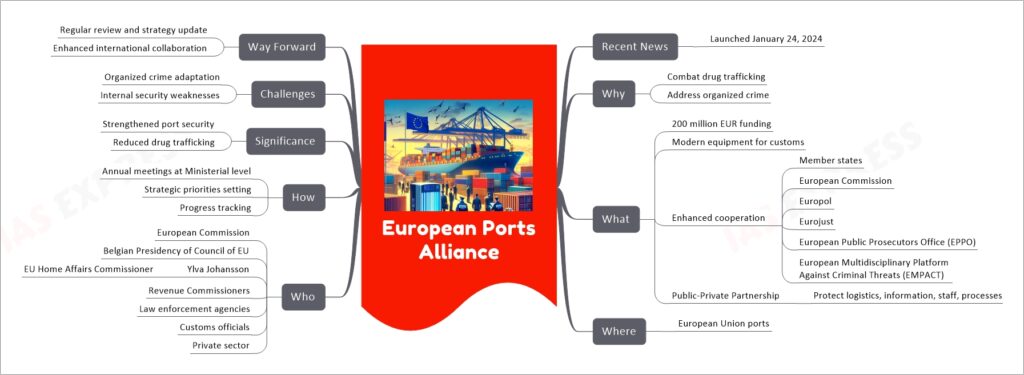
The European Ports Alliance, launched on January 24, 2024, by the European Commission in collaboration with the Belgian Presidency of the Council of the EU, is a significant initiative aimed at combating drug trafficking and organized crime in European ports. This response is prompted by the alarming increase in drug seizures in European ports. The Alliance involves an investment of 200 million EUR for state-of-the-art equipment to assist customs officials and fosters cooperation between various European entities. It also includes a Public-Private Partnership to safeguard logistics and operations in ports. This strategic move is crucial for enhancing the security of Europe’s logistics hubs and curtailing the activities of criminal groups exploiting port vulnerabilities.
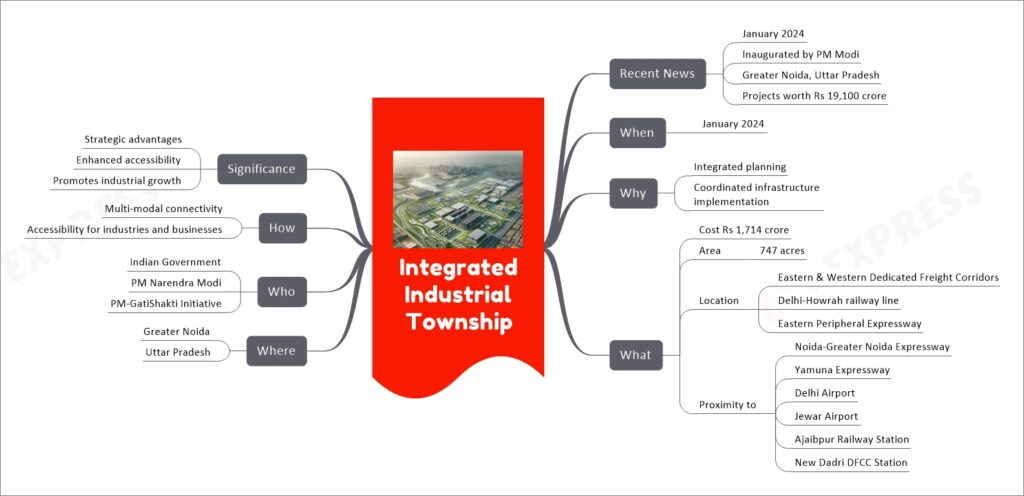
The Integrated Industrial Township in Greater Noida, inaugurated in January 2024 by Prime Minister Narendra Modi, is a landmark development in India’s urban and industrial infrastructure. Costing Rs 1,714 crore and covering 747 acres, it’s strategically placed at key infrastructural junctions, including the Eastern and Western Dedicated Freight Corridors and the Delhi-Howrah railway line. This township, developed under the PM-GatiShakti initiative, aims to provide enhanced multi-modal connectivity, fostering accessible and efficient industrial growth.
If you like this post, please share your feedback in the comments section below so that we will upload more posts like this.
